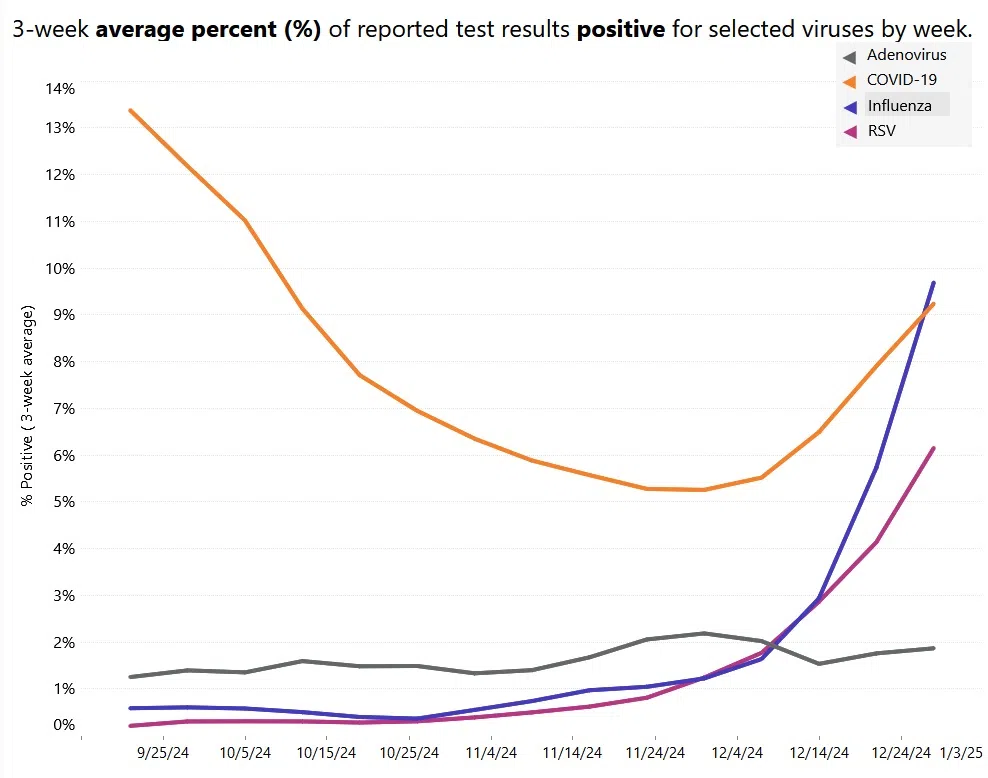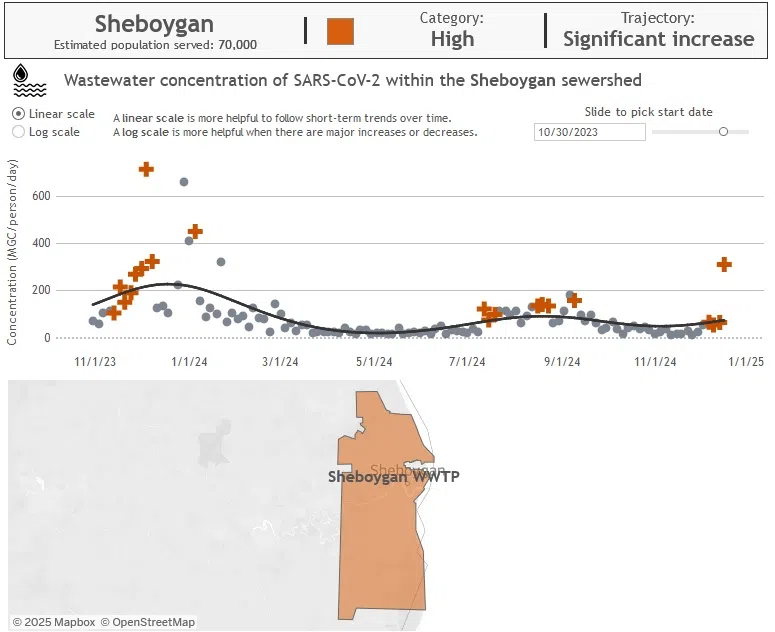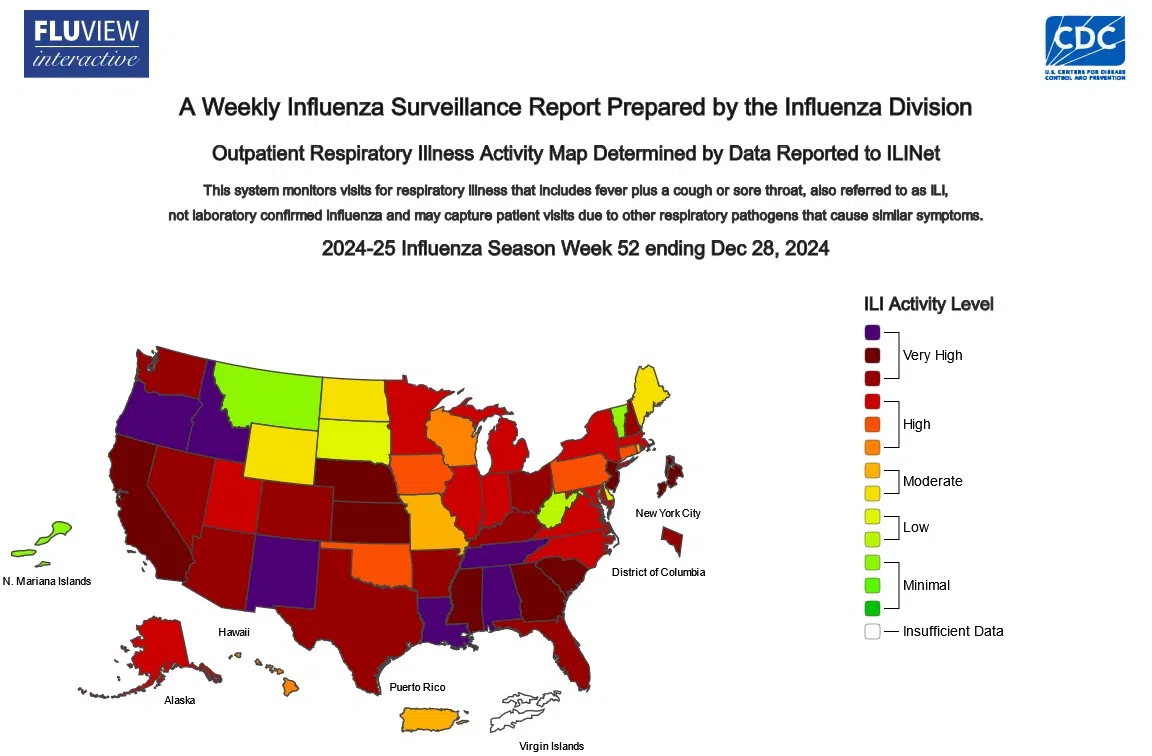It may look like deja-vous to some, but the masks being worn by increasing numbers in public aren’t just a throwback to the pandemic days; present-day surges of respiratory virus have health officials chasing cases and urging the public to help avoid more widespread outbreaks.
At least one area health system has implemented tighter restrictions already. Aurora Health Care has announced that effective today, January 6, visitors at all Wisconsin locations will have to mask up “when in contact with patients or in congregate areas, including patient rooms and other areas designated by signage.”
The current guidelines for Froedtert and the Medical College of Wisconsin sites indicate that masking is optional for patients, visitors and staff except in the case of fever, sore throat, runny nose or cough, in which case masks should be used.
HSHS St. Nicholas Hospital implements seasonal guidelines which, at present, request that people DO NOT visit hospital patients if cold or any flu-like symptoms including fever, chills, sore throat, body or muscle aches, headache, cough or runny nose are present. Those under age 18 are also requested to not visit patients. Additionally, a limit of only two people are allowed to visit a patient at any one time.

Graphic Courtesy of the Wisconsin DHS Shows Rising Test Results for Respiratory Illness Since September 21, 2024
The most recent respiratory virus report from the Wisconsin Department of Health Services on December 21st listed moderate levels of influenza-like illnesses in Wisconsin with increasing hospitalizations as a result. Influenza was the dominant type of respiratory illness, with total cases over 3,000 from September 1st to December 31st. COVID-19 was running a close second, with RSV and Adenovirus holding the #3 and #4 spots. The trajectory on all was upward.
While no county-level data was available overall, wastewater monitoring at the Sheboygan Wastewater Treatment Plant was showing a high level of SARS-CoV-2 virus, with the trajectory showing a significant increase.

Data From the Wisconsin DHS Indicates Levels of SARS-CoV-2 Virus at the Sheboygan Watewater Facility Over the Past 14 Months
Besides the “marquee” collection of infections, some lesser-known illnesses are also making the rounds. According to Aurora Health Care, Wisconsin has some of the most whooping cough cases nationally, and norovirus cases are surging everywhere, affecting people of all ages but especially the young, seniors, and those with other health issues.
The steps needed to slow the spread are, by now, familiar. Wash hands frequently, stay home if you’re sick, and consider masking up in heavily-populated and enclosed public spaces.







Comments